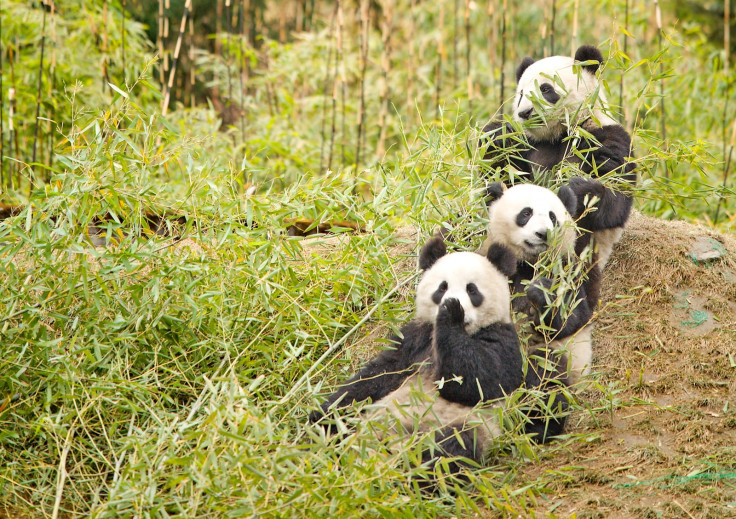Two 'obese' pandas put on weight-loss diet in Taipei zoo
The two female pandas will now be fed food items such as steamed bread, corn, and soybean.
We have heard of humans being put on special diets to help them lose weight, but a zoo in Taipei, Taiwan has had to put two pandas on a strict diet because they have become obese.
Nine-year-old Yuan Zai and her younger sister Yuan Bao are the daughters of two giant pandas gifted to Taiwan by mainland China in 2008. Zai is already as heavy as her father at 115 kg., while Bao is 70 kg. and is just over one year old.
They are being put on a special diet to "help them reach their ideal weight," said the zoo authorities in a statement. "For the sake of their health, I hope to slowly help them achieve their ideal weight through the change of food," a zookeeper told The Independent.
The zookeeper further added that the pandas gained so much weight as they were leading a sedentary lifestyle because of being kept in captivity. They are, however, healthy and these steps are being taken to ensure that they stay healthy.
The pandas will also be made to follow an exercise plan, special games will be designed to help them lead an active lifestyle. They will be fed a special diet that will be low in salt, sugar, and fats.
A healthy female adult panda should have a weight ranging between 105kg and 110kg since obesity could cause hypertension and hyperglycemia in pandas.
Genetically similar to the bear, pandas feed exclusively on bamboo. They typically weigh in at approximately 220 pounds (100 kilograms) and measure up to six feet (1.8 meters) long.
According to World Wildlife Fund, Pandas are crucial for the ecosystem as they protect other animals that live around them such as the golden monkey, takin, and crested ibis.
The species was upgraded from 'endangered' to 'vulnerable,' in 2017. There are now less than 1,900 wild and around 600 captive giant pandas in the world.

© Copyright IBTimes 2025. All rights reserved.






















